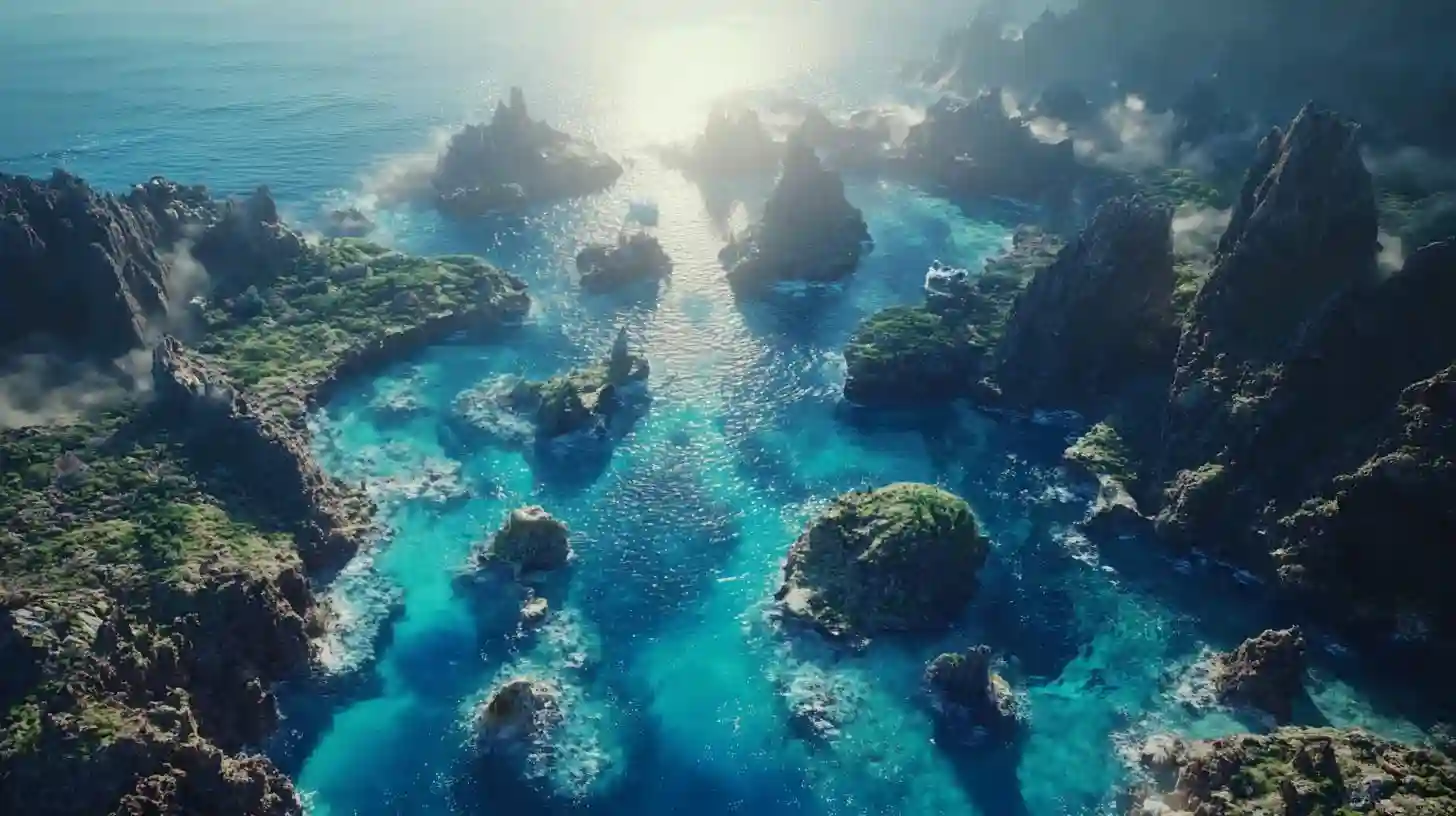
The world’s oceans are home to some of the most remarkable ecosystems on the planet, and coral reefs stand out as extraordinary examples of nature’s beauty and complexity. Around various islands, these underwater gardens burst with vibrant colors, providing breathtaking spectacles for divers and snorkelers. Each reef is a unique combination of corals, fish, and marine life that contributes to the ecological balance of the ocean. These underwater colonies thrive in warm, shallow waters, often surrounding islands, creating rich habitats that are not only essential for marine biodiversity but also integral to local economies and cultures.
One of the most famous regions for coral reefs is the Great Barrier Reef, located off the coast of Australia. This vast coral system stretches over two thousand kilometers and is home to thousands of marine species, including tropical fish, sea turtles, sharks, and even dolphins. The vibrant corals come in countless shapes and sizes, providing essential shelter and nourishment for marine life. Diving in this area offers an unparalleled experience where visitors can immerse themselves in the vivid underwater world, witnessing schools of fish navigating through coral formations while being enveloped in a spectrum of colors.
Moving towards the Caribbean, the coral reefs around the islands present another layer of wonder. The Bahamas, Jamaica, and the Cayman Islands boast stunning reef systems that lure divers from all over the globe. The crystal-clear waters of these regions allow for incredible visibility, showcasing the lively interactions between species. Colorful parrotfish graze on algae, while majestic stingrays glide gracefully along the sandy bottoms. The reefs support a rich array of biodiversity, with hard and soft corals coexisting and providing ecological services that sustain both marine life and human inhabitants. Exploring these reefs often leads to encounters with playful dolphins and curious sea turtles, creating unforgettable moments for those who venture beneath the waves.
In the Pacific, the islands of Hawaii offer their own unique coral experiences. The Hawaiian reefs are characterized by diverse species endemic to the region, including the vibrant Hawaiian reef fish known as humuhumunukunukuapua'a. The underwater topography can vary dramatically, from ancient lava flows to expansive coral gardens, providing a variety of habitats for marine creatures. The reefs are vital for maintaining the health of the ocean and serve as critical breeding grounds for many species. For divers, exploring these reefs provides not only the thrill of encountering exotic wildlife but also the chance to witness the fragility of these ecosystems that are impacted by climate change and human activity.
Another remarkable region is the Red Sea, known for its unparalleled marine biodiversity and stunning coral formations. The reefs surrounding the Egyptian coast are a diver's paradise, brimming with life and vibrant colors. The unique conditions of the Red Sea provide an ideal environment for coral growth, resulting in expansive, healthy reefs teeming with fish and other marine organisms. Diving here exposes visitors to underwater landscapes characterized by dramatic drop-offs, coral walls, and thriving marine life such as anemones, clownfish, and various species of wrasses. The rich biodiversity and clear waters make the Red Sea one of the top destinations for marine enthusiasts looking for adventure in an aquatic wonderland.
The islands of the Indian Ocean, particularly Madagascar and the Seychelles, also host incredible coral reefs that contribute to the global marine ecosystem. These reefs are home to some of the most diverse marine life, showcasing colorful corals and countless fish species. Diving along the shores of Madagascar allows for the chance to discover rare species found nowhere else in the world. The reefs here are vital for the local fishing communities, providing sustenance and livelihoods. Moreover, the unique biodiversity found in these waters plays a critical role in maintaining ecological balance, highlighting the importance of conservation efforts to protect these fragile environments.
As the world faces rising ocean temperatures and climate change, the preservation of coral reefs around islands has become increasingly vital. These ecosystems not only support a rich diversity of marine life but also serve as natural barriers protecting coastal regions from erosion and storm surges. Conservation initiatives aimed at protecting and restoring coral reefs are essential for their survival. Sustainable tourism practices can help mitigate the impact of human activity, allowing future generations to appreciate the wonders of nature's underwater treasures. Exploring these incredible reefs around islands offers a glimpse into the vibrant life beneath the waves, reminding all of us of the beauty and fragility of our natural world.